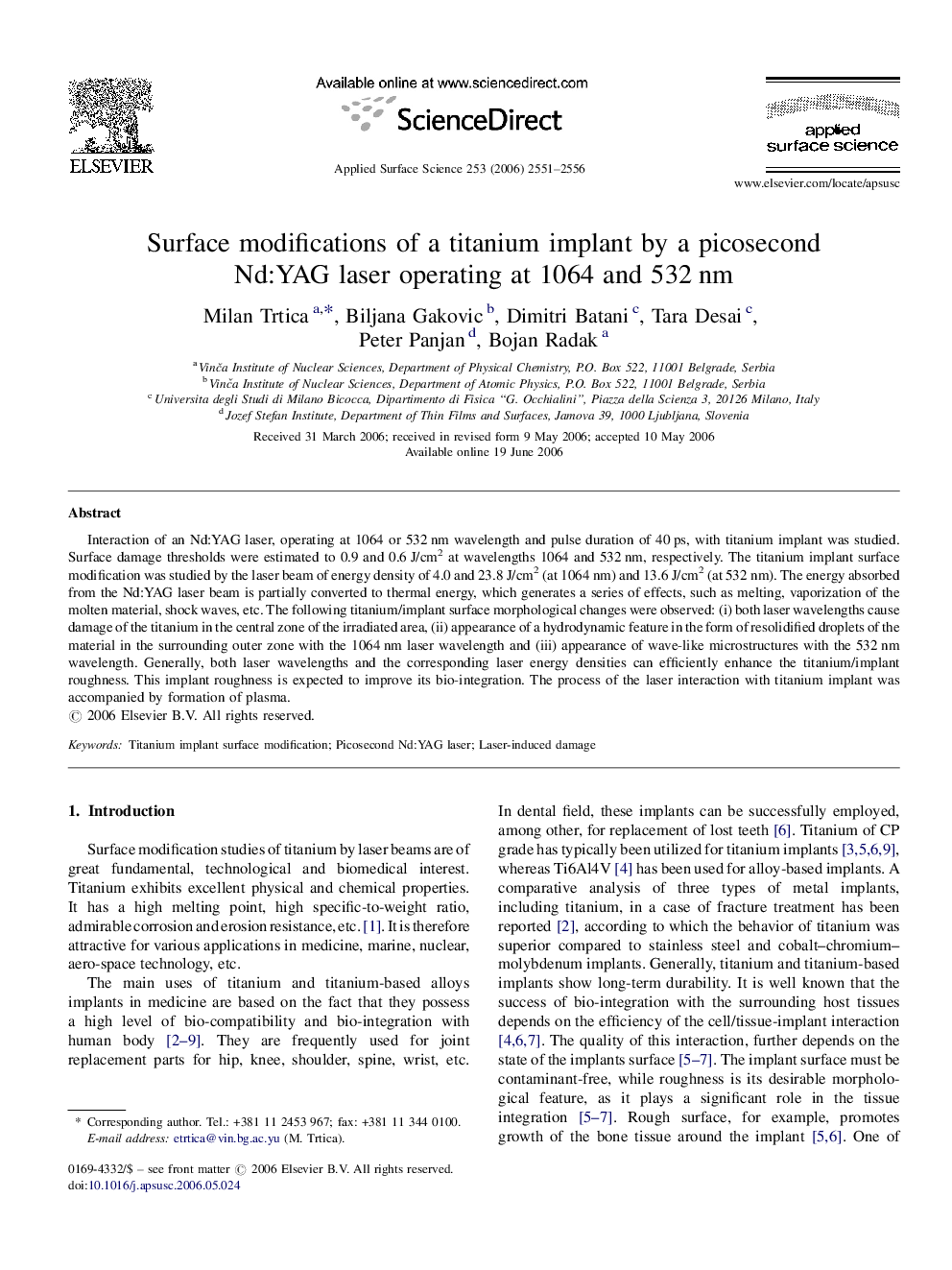| کد مقاله | کد نشریه | سال انتشار | مقاله انگلیسی | نسخه تمام متن |
|---|---|---|---|---|
| 5369929 | 1388465 | 2006 | 6 صفحه PDF | دانلود رایگان |

Interaction of an Nd:YAG laser, operating at 1064 or 532Â nm wavelength and pulse duration of 40Â ps, with titanium implant was studied. Surface damage thresholds were estimated to 0.9 and 0.6Â J/cm2 at wavelengths 1064 and 532Â nm, respectively. The titanium implant surface modification was studied by the laser beam of energy density of 4.0 and 23.8Â J/cm2 (at 1064Â nm) and 13.6Â J/cm2 (at 532Â nm). The energy absorbed from the Nd:YAG laser beam is partially converted to thermal energy, which generates a series of effects, such as melting, vaporization of the molten material, shock waves, etc. The following titanium/implant surface morphological changes were observed: (i) both laser wavelengths cause damage of the titanium in the central zone of the irradiated area, (ii) appearance of a hydrodynamic feature in the form of resolidified droplets of the material in the surrounding outer zone with the 1064Â nm laser wavelength and (iii) appearance of wave-like microstructures with the 532Â nm wavelength. Generally, both laser wavelengths and the corresponding laser energy densities can efficiently enhance the titanium/implant roughness. This implant roughness is expected to improve its bio-integration. The process of the laser interaction with titanium implant was accompanied by formation of plasma.
Journal: Applied Surface Science - Volume 253, Issue 5, 30 December 2006, Pages 2551-2556